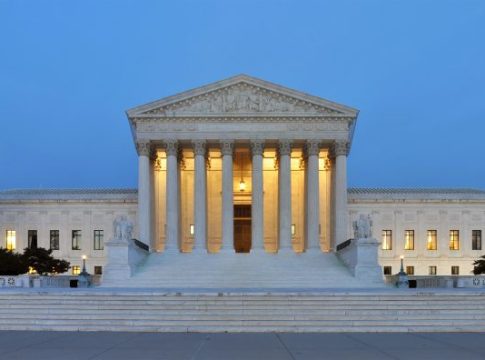In a recent decision, the United States Supreme Court has determined that former President Donald Trump, along with other past presidents, holds a degree of immunity from criminal prosecution, marking a significant legal triumph for the Republican presidential candidate.
The 6-3 verdict did not entirely dismiss the indictment accusing Trump of attempting to overturn the 2020 election; however, it did eliminate crucial aspects of the case against him.
The justices concluded that a president is shielded from prosecution for “official acts” but remains susceptible to legal action for “unofficial acts,” prompting a referral of the matter back to a trial judge.
READ MORE: Supreme Court In Texas Prohibits Medical Treatment For Transgender Children
While the three liberal justices dissented vehemently, expressing concerns for the nation’s democracy, the ruling notably diminishes the likelihood of the Republican candidate facing a trial before the upcoming November presidential elections. This marks the first instance in U.S. history where the Supreme Court has affirmed that former presidents can benefit from protection against criminal charges.
Trump Reacts to US Supreme Court’s Decision on His Immunity
The majority opinion of the top court overturned a prior ruling by a lower court that had dismissed Trump’s claim of absolute immunity. The justices clarified that while a president is indeed granted absolute immunity for official actions, they can still be subject to prosecution for personal actions.
Regarding the indictment alleging that Trump exerted pressure on the Department of Justice to investigate election fraud claims, Justice Roberts emphasized that a president’s interactions with the DOJ constitute official presidential acts and are thus “absolutely immune” from prosecution in such circumstances.
In dissent, Justice Sotomayor expressed concerns that the ruling could shield a president even if they engaged in extreme actions such as ordering the assassination of a political opponent or orchestrating a military coup for power retention.
Justice Jackson, in a separate dissent, criticized the conservative majority’s decision, stating that it sets a perilous precedent and weakens the legal safeguards in place.




